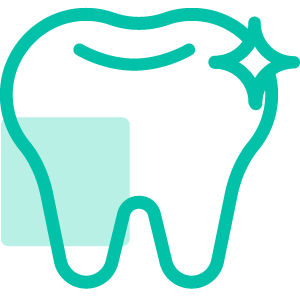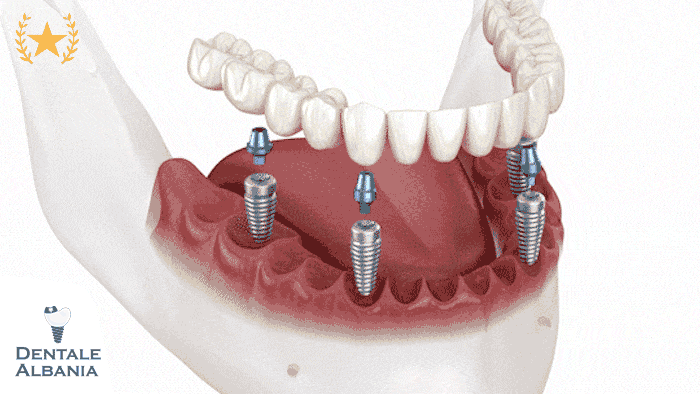Table of Contents
ToggleWhat Is a Dental Examination and Why Is It Important?

A dental examination is a routine visit to your dentist where they assess the health of your teeth, gums, and mouth. This thorough examination helps to identify any existing dental issues, such as cavities or gum disease, and detect potential problems before they become serious. It’s important to note that regular dental check-ups play a significant role in maintaining optimal oral health and preventing long-term dental problems.
Importance of Routine Check-ups for Maintaining Oral Health
Regular dental examinations are crucial for preserving your overall oral health. These routine visits allow your dentist to monitor the condition of your teeth and gums, ensuring that any issues are caught early. For instance, your dentist may notice signs of plaque buildup or early gum disease, which can be easily treated if addressed promptly. Without regular check-ups, these minor issues may go unnoticed and could progress into more severe conditions, leading to expensive and complicated procedures in the future.
Benefits of Early Detection of Dental Problems
One of the most significant benefits of regular dental check-ups is the early detection of dental issues. For example, your dentist can identify cavities before they cause pain or require invasive procedures like root canals. Additionally, early detection of gum disease can prevent tooth loss and other complications. This proactive approach helps to save money, time, and discomfort in the long run, as treating dental problems in their early stages is typically less costly and less painful than addressing more advanced conditions.
What Happens During a Dental Check-up?
When you visit your dentist for a routine check-up, they perform a series of assessments to ensure your teeth, gums, and mouth are in good health. Here’s what you can expect during a typical dental check-up.
What the Dentist Will Do During the Examination
- Examine Teeth, Gums, and Mouth: Your dentist will closely inspect your teeth for any signs of decay, cavities, or damage. They’ll also check your gums for any signs of gum disease, such as redness, swelling, or bleeding. The dentist will assess the overall health of your mouth, looking for sores, infections, or abnormal growths.
- Ask About General Health and Past Dental Issues: Your dentist will ask if you’ve experienced any problems with your teeth, mouth, or gums since your last visit. They may inquire about changes in your diet, lifestyle, and whether you’re taking any new medications that could affect your oral health.
Role of X-rays During Dental Exams
- How X-rays Help Detect Hidden Issues: X-rays are an essential part of routine dental exams. While a dentist can visually check for obvious problems, X-rays provide a more detailed view of the inside of your teeth and gums. X-rays can uncover issues such as cavities between your teeth, early signs of gum disease, or bone loss that may not be visible during the physical examination.
- Common Uses of X-rays in Dental Care: In some cases, X-rays may be used to identify impacted teeth, abscesses, cysts, or even oral cancer. Your dentist will decide when X-rays are necessary based on your oral health history and the specific issues they observe during the check-up.
How Often Should You Visit the Dentist for a Check-up?
The frequency of dental check-ups can vary depending on your oral health, risk factors, and any dental conditions you might have. Generally, most adults and children should visit the dentist every six months for a routine examination.
Standard Recommendation of Every 6 Months
- Why Regular Visits Are Recommended: Dentists typically recommend check-ups every six months because it allows them to detect problems before they worsen. Routine exams help maintain oral health and prevent the development of serious issues such as cavities or gum disease.
- Importance of Consistency: Regular check-ups ensure that issues like tartar buildup, which cannot be removed by brushing alone, are addressed before they cause damage. These visits also help to keep track of any changes in your oral health, allowing for timely intervention.
Why Some People Need More Frequent Visits
- Increased Risk Factors: People with specific risk factors might need more frequent dental visits. Those who have gum disease, a history of frequent cavities, or health conditions that affect oral health, such as diabetes, may need to see their dentist more often.
- Special Needs for Higher Risk Patients: Patients who smoke, have poor oral hygiene habits, or suffer from chronic conditions that affect their immune system may be advised to visit the dentist every three to four months to monitor their oral health more closely.
How Good Oral Hygiene Can Extend Time Between Check-ups
- Maintaining Oral Health Between Visits: Good oral hygiene, including brushing twice daily, flossing regularly, and using mouthwash, can help maintain your oral health and potentially extend the time between dental check-ups. If your teeth and gums remain healthy, your dentist may recommend longer intervals between visits, sometimes up to one year.
- Proactive Oral Care: By maintaining a solid oral hygiene routine, you can reduce the risk of developing cavities, gum disease, or other oral health issues. This not only helps in improving your overall health but also reduces the frequency of dental visits.
What Factors Influence the Frequency of Dental Exams?
- Age: Children and older adults may need more frequent visits due to changes in oral health. Children, for instance, may require more regular visits to monitor the eruption of their adult teeth. Seniors may need frequent check-ups to deal with issues like tooth wear, gum recession, or dry mouth due to medications.
- Dental Health History: People with a history of dental problems, such as cavities, gum disease, or oral cancer, should consider more frequent visits to ensure these issues are monitored and treated appropriately.
What Does a Full Dental Examination Include?
A full dental examination is a comprehensive check-up that assesses the overall health of your teeth, gums, and mouth. It helps your dentist identify any potential issues and provides an opportunity to address problems early on.
What is Included in a Full Dental Examination
- Teeth Cleaning: During a full dental exam, a professional cleaning is often performed to remove plaque and tartar buildup. This cleaning is essential because plaque left on the teeth can lead to cavities and gum disease if not properly cleaned.
- Gum Health Check: Your dentist will evaluate the health of your gums to check for signs of gum disease, such as swelling, bleeding, or pockets around the teeth. Early detection of gum disease is crucial for preventing tooth loss and other complications.
- Oral Cancer Screening: Your dentist will also check for any signs of oral cancer by examining your mouth, lips, tongue, and throat. Early detection of oral cancer can be life-saving, making this an essential part of a full dental exam.
- X-rays: Depending on your needs, your dentist may take X-rays to examine areas that are not visible during a physical exam. X-rays can detect hidden issues such as cavities between teeth, bone loss, or impacted teeth.
Common Treatments Recommended After Dental Exams
- Scaling and Polishing for Tartar Removal: If your dentist notices tartar buildup, they may recommend scaling and polishing. This treatment removes hardened plaque (tartar) from your teeth and below the gum line, helping to prevent gum disease and tooth decay.
- Restorative Procedures: If cavities or other dental problems are detected, restorative procedures such as fillings, crowns, or bridges may be necessary. Your dentist will explain the best treatment options and ensure that any issues are addressed to prevent further complications.
- Preventive Measures: In some cases, your dentist may recommend dental sealants or fluoride treatments to help protect your teeth from decay. Sealants are often applied to the chewing surfaces of back teeth to prevent cavities, especially in children and teenagers.
How Can You Prepare for a Dental Check-up?
Preparing for a dental check-up ensures that the visit is as smooth and efficient as possible. Proper preparation can also help reduce any anxiety or concerns you may have about your appointment.
Tips for Preparing for Your Visit
- Bring a List of Any Medications: It’s important to inform your dentist about any medications you’re currently taking, including over-the-counter drugs and supplements. Certain medications can impact your oral health, so having this information on hand helps your dentist make informed decisions about your care.
- Discuss Dental Anxiety or Special Needs with Your Dentist: If you have any concerns or experience anxiety about dental visits, let your dentist know before the appointment. Dentists are experienced in dealing with nervous patients and can modify their approach to ensure you feel as comfortable as possible.
- Share Any Changes in Your Health: Your dentist will want to know if you’ve had any recent changes to your overall health. Whether it’s a new medical diagnosis or a change in your oral health habits, keeping your dentist informed will help them better understand your needs and tailor your care accordingly.
How to Maintain Oral Hygiene Before and After the Visit
- Proper Brushing and Flossing Techniques: Brushing your teeth twice a day and flossing regularly is the best way to keep your mouth healthy. Before your check-up, make sure to brush and floss your teeth thoroughly to ensure your dentist can get an accurate view of your oral health.
- Follow Dentist’s Recommendations for Post-Visit Care: After your dental check-up, your dentist may offer specific instructions based on what they find during the exam. These may include tips on improving your oral hygiene routine or recommendations for treatments like fluoride applications or sealants.
What Are the Early Signs of Gum Disease?

Gum disease is a common issue that can lead to serious oral health problems, including tooth loss, if left untreated. Identifying the early signs of gum disease is crucial for preventing more severe damage.
Identifying Early Signs of Gum Disease
- Red, Swollen Gums: One of the earliest signs of gum disease is red, inflamed gums. Healthy gums should appear pink and firm, not swollen or tender. If you notice that your gums are becoming inflamed or look a darker red than usual, this could indicate the early stages of gum disease.
- Bleeding While Brushing: Gums that bleed when you brush or floss your teeth is another early warning sign of gum disease. This is often due to gingivitis, the first stage of gum disease, where plaque buildup irritates the gums and causes bleeding.
- Persistent Bad Breath (Halitosis): If you notice persistent bad breath, even after brushing your teeth, it could be a sign of gum disease. Bacteria in the mouth can cause an unpleasant odor, which is often a result of plaque and tartar buildup around the gums.
Preventing Gum Disease Through Regular Check-ups
- Importance of Professional Cleanings: Professional cleanings performed by your dentist or hygienist are essential for preventing gum disease. During a check-up, your dentist can remove plaque and tartar buildup that regular brushing and flossing may miss. This helps keep your gums healthy and prevents the onset of gingivitis and other forms of gum disease.
- Early Intervention: Regular dental visits allow your dentist to detect gum disease early, which can often be reversed with simple treatments like professional cleanings and improved at-home oral hygiene. The earlier gum disease is treated, the less likely it is to progress to a more serious stage, such as periodontitis, which can result in tooth loss.
Are Oral Cancer Screenings Included in Dental Examinations?
Oral cancer screenings are an essential part of routine dental exams, as early detection of oral cancer can significantly improve treatment outcomes. During your dental check-up, your dentist may check for signs of oral cancer.
What is an Oral Cancer Screening?
- Examination for Oral Cancer: An oral cancer screening involves your dentist examining your mouth, lips, tongue, cheeks, and throat for any abnormalities or signs of cancer. This includes checking for any lumps, lesions, or areas of irritation that could indicate a problem.
- Visual and Physical Examination: During the screening, the dentist uses their hands and eyes to inspect your mouth and neck. They may gently feel the tissues inside your mouth and around your neck to identify any unusual lumps or swellings that could be signs of oral cancer.
Areas Checked During Oral Cancer Screening
- Lips and Mouth: Your dentist will look for any sores, ulcers, or red and white patches inside your mouth or on your lips that could be signs of oral cancer.
- Tongue and Throat: The dentist will carefully examine the surface of your tongue and the back of your throat, checking for any growths or lesions.
- Neck and Lymph Nodes: In some cases, your dentist may also palpate your neck to check for swollen lymph nodes, which can be an indication of oral cancer spreading.
How Early Detection Can Save Lives
- Improved Prognosis with Early Detection: Oral cancer is one of the most treatable cancers when detected early. Regular screenings at your dental check-up can help catch signs of cancer in its early stages, improving the chances of successful treatment and survival.
- Proactive Approach to Oral Health: By including an oral cancer screening in your regular dental visits, you take a proactive step in protecting your health. If any suspicious areas are found, your dentist will refer you for further testing, ensuring that any potential issues are addressed promptly.
How Long Does a Complete Oral Exam Take?

A complete oral exam is a thorough examination performed by your dentist to assess the overall health of your mouth, teeth, and gums. The duration of the exam can vary depending on several factors, but it is generally a quick process.
Average Time for a Full Dental Exam
- Typical Duration of an Exam: On average, a complete oral exam takes about 30 to 60 minutes. During this time, your dentist will evaluate your teeth, gums, mouth, and any dental restorations (such as fillings or crowns). The length of the exam may vary based on the complexity of your oral health.
- Factors That Affect the Duration: If you are a new patient, your dentist may take additional time to get your dental history and perform X-rays. If you have complex dental needs or if treatment is required during the visit, the appointment may take longer.
What to Expect During the Exam
- Routine Evaluation: The dentist will begin by reviewing your dental health history and asking questions about your current oral habits, diet, and any discomfort you’ve been experiencing. Then, they will visually examine your teeth and gums for any signs of decay, disease, or other issues.
- X-rays: In some cases, your dentist may take X-rays to help identify underlying issues such as cavities, bone loss, or impacted teeth. X-rays may add some time to your appointment but are essential for a comprehensive evaluation.
- Teeth Cleaning: If needed, a dental hygienist may perform a cleaning, which typically includes scaling, polishing, and fluoride treatment. This step may also add time to the overall duration of the visit.
Factors Affecting the Duration of the Exam
- Existing Dental Issues: If you have a history of dental problems or current concerns, your dentist may need to spend additional time reviewing your dental health and discussing treatment options.
- Health Conditions: Patients with specific medical conditions (such as diabetes, heart disease, or immune system disorders) may require additional attention during their oral exam, which could extend the appointment time.
- Patient Experience: For individuals with dental anxiety, the dentist may need to take extra time to ensure the patient feels comfortable during the exam. In such cases, your dentist may allow for more breaks or provide sedation options if necessary.
Frequently Asked Questions About Dental Examinations

Dental examinations are essential for maintaining good oral health, but many people have questions about what to expect. Here are some frequently asked questions to help clarify the process and importance of regular dental check-ups.
What Happens If You Miss Your Dental Check-up?
- Consequences of Missing Appointments: Missing regular dental check-ups can lead to a delay in identifying oral health problems. Issues such as cavities, gum disease, and even oral cancer can worsen over time, making treatment more difficult and expensive.
- Why It’s Important to Reschedule: If you miss an appointment, it’s essential to reschedule as soon as possible. Regular visits allow your dentist to catch any problems early, which helps maintain the health of your teeth and gums.
Why is a Dental Exam Necessary Even If You Feel Fine?
- Prevention of Hidden Problems: Even if you feel fine and have no obvious symptoms, a dental exam is crucial for preventing issues that may not be immediately visible. Many dental problems, such as cavities, gum disease, and oral cancer, develop without noticeable pain or discomfort in the early stages.
- Importance of Routine Check-ups: A dental check-up helps identify hidden issues that could turn into more serious problems. Routine exams allow your dentist to monitor the overall health of your teeth and gums and intervene before problems become severe.









